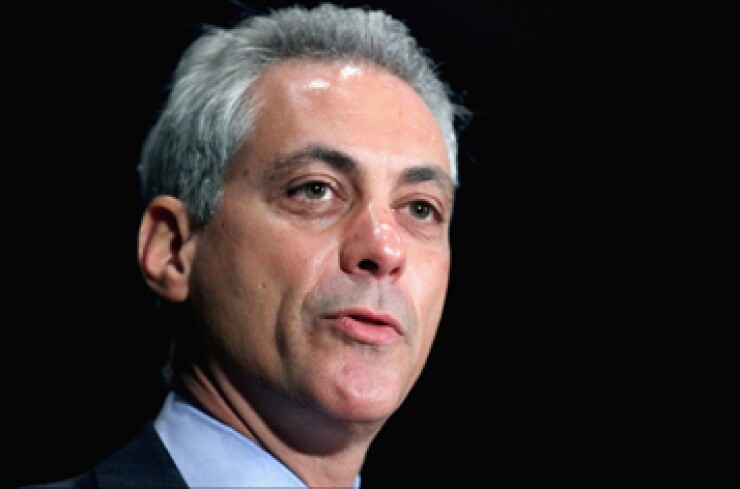
CHICAGO — Chicago faces a second lawsuit challenging the constitutionality of laws adopted last year that overhauled two of its four pension funds.
Chicago-based attorney Clint Krislov filed a complaint in Cook County Circuit Court in late December arguing changes that cut benefits for members of the laborers' fund, including cost-of-living-adjustments, violate the state constitution's protections against impairing and diminishing pension benefits.
The lawsuit follows one filed on Dec. 16 by a group of unions, employees and retirees challenging the changes to the municipal employees' fund. A court hearing will take place later this month on the unions' request for a temporary restraining order preventing implementation of the reforms, which took effect Jan. 1.
Chicago police and firefighters participate in two separate funds but they were not impacted by the last year's legislation.
Mayor Rahm Emanuel's administration maintains that the overhaul is legal and in the best interest of the fund participants and city and were adopted with the support of most unions.
"Without this reform, these two funds will run out of money in just a matter of years, which is why we must defend this law to protect the future of our workers, retirees, and taxpayers," the mayor said in a statement.
The legislation calls for higher city and employee contributions and some benefit cuts, including a reduction in existing annual cost-of-living increases. The legislation imposes a five-year ramp up period in contributions to 2020, with city contributions growing a total of $750 million, when payments would reach an actuarially required contribution level that puts the funds on course to a 90% funded ratio in 40 years. Contribution levels were previously set in statute and often fall short of actuarially required levels.
The legislation includes a provision that gives unions the right to sue should the city fall short of its required contribution levels.
The city has blamed its $19 billion of unfunded pension obligations for its credit rating deterioration over the last two years, because the obligations weigh on the city's balance sheet and offset strides toward structurally balancing its budget.
Moody's Investors Service in March knocked Chicago's GO rating to Baa1 with a negative outlook from A3 with a negative outlook. That followed the agency's three-notch downgrade from Aa3 in July 2013.
In November 2013, Fitch Ratings downgraded Chicago GOs three notches to A-minus from AA-minus and assigned a negative outlook. In September 2013, Standard & Poor's revised its outlook to negative from stable while affirming the city's A-plus rating. Chicago has paid steep penalties to borrow amid investors' concern about the city's pension mess.
Separately, the city is facing a $550 million spike in contributions to its police and firefighters' funds in 2016 under a prior state mandate but is hoping for action on those plans in a future state legislative session.
A Sangamon County Circuit Court judge recently overturned state level pension reforms and the Illinois Supreme Court will hear arguments in March on the state's appeal.





